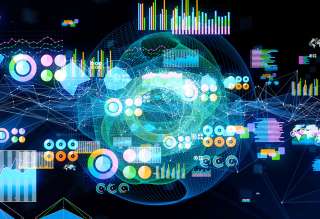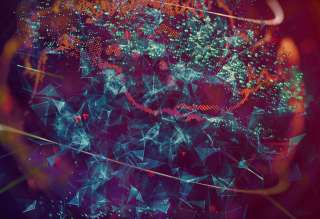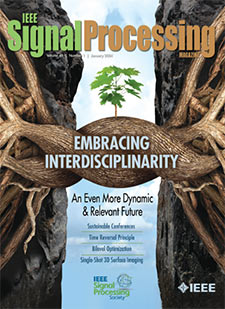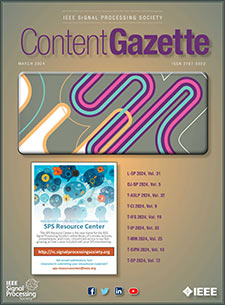- Our Story
- Publications & Resources
- Publications & Resources
- Publications
- IEEE Signal Processing Magazine
- IEEE Journal of Selected Topics in Signal Processing
- IEEE Signal Processing Letters
- IEEE/ACM Transactions on Audio Speech and Language Processing
- IEEE Transactions on Computational Imaging
- IEEE Transactions on Image Processing
- IEEE Transactions on Information Forensics and Security
- IEEE Transactions on Multimedia
- IEEE Transactions on Signal and Information Processing over Networks
- IEEE Transactions on Signal Processing
- IEEE TCI
- IEEE TSIPN
- Data & Challenges
- Submit Manuscript
- Guidelines
- Information for Authors
- Special Issue Deadlines
- Overview Articles
- Top Accessed Articles
- SPS Newsletter
- SigPort
- SPS Resource Center
- Publications Feedback
- Publications FAQ
- Blog
- News
- Dataset Papers
- Conferences & Events
- Community & Involvement
- Professional Development
- For Volunteers
- Information for Authors-OJSP
-
Home
Conferences Events IEEE JSTSP Article IEEE Signal Processing Magazine IEEE TIFS Article IEEE TMM Article IEEE TSP Article Jobs in Signal Processing Lectures Machine Learning Seasonal Schools Signal Processing News SPM Article SPS Distinguished Lectures SPS Newsletter Article SPS Webinar SPS Webinars SPS Webinar Series Webinar webinars
-
Our Story
What is Signal Processing?

The technology we use, and even rely on, in our everyday lives –computers, radios, video, cell phones – is enabled by signal processing. Learn More » -
Publications & Resources
-
SPS Resources
- Signal Processing Magazine The premier publication of the society.
- SPS Newsletter Monthly updates in Signal Processing
- SPS Resource Center Online library of tutorials, lectures, and presentations.
- SigPort Online repository for reports, papers, and more.
- SPS Feed The latest news, events, and more from the world of Signal Processing.
-
SPS Resources
-
Conferences & Events
-
Community & Involvement
-
Membership
- Join SPS The IEEE Signal Processing Magazine, Conference, Discounts, Awards, Collaborations, and more!
- Chapter Locator Find your local chapter and connect with fellow industry professionals, academics and students
- Women in Signal Processing Networking and engagement opportunities for women across signal processing disciplines
- Students Scholarships, conference discounts, travel grants, SP Cup, VIP Cup, 5-MICC
- Young Professionals Career development opportunities, networking
- Get Involved
-
Technical Committees
- Applied Signal Processing Systems
- Audio and Acoustic Signal Processing
- Bio Imaging and Signal Processing
- Computational Imaging
- Image Video and Multidimensional Signal Processing
- Information Forensics and Security
- Machine Learning for Signal Processing
- Multimedia Signal Processing
- Sensor Array and Multichannel
- Signal Processing for Communication and Networking
- Signal Processing Theory and Methods
- Speech and Language Processing
- Technical Working Groups
- More TC Resources
-
Membership
-
Professional Development
-
Professional Development
- Mentoring Experiences for Underrepresented Young Researchers (ME-UYR)
- Micro Mentoring Experience Program (MiME)
- Distinguished Lecturer Program
- Distinguished Lecturers
- Distinguished Lecturer Nominations
- Past Lecturers
- Distinguished Industry Speaker Program
- Distinguished Industry Speakers
- Distinguished Industry Speaker Nominations
- Industry Resources
- IEEE Training Materials
- Jobs in Signal Processing: IEEE Job Site
-
Career Resources
- SPS Education Program Educational content in signal processing and related fields.
- Distinguished Lecturer Program Chapters have access to educators and authors in the fields of Signal Processing
- PROGRESS Initiative Promoting diversity in the field of signal processing.
- Job Opportunities Signal Processing and Technical Committee specific job opportunities
- Job Submission Form Employers may submit opportunities in the area of Signal Processing.
-
Professional Development
-
For Volunteers
-
For Board & Committee Members
- Board Agenda/Minutes* Agendas, minutes and supporting documentation for Board and Committee Members
- SPS Directory* Directory of volunteers, society and division directory for Board and Committee Members.
- Membership Development Reports* Insight into the Society’s month-over-month and year-over-year growths and declines for Board and Committee Members
-
For Board & Committee Members
Popular Pages
Today's:
- Submit a Manuscript
- (MLSP 2024) 2024 IEEE International Workshop on Machine Learning for Signal Processing
- Information for Authors
- IEEE Signal Processing Letters
- (SLT 2024) 2024 IEEE Spoken Language Technology Workshop
- SPS Scholarship Program
- IEEE Transactions on Multimedia
- IEEE/ACM Transactions on Audio Speech and Language Processing
- IEEE Transactions on Image Processing
- IEEE Transactions on Information Forensics and Security
- Information for Authors-SPL
- Conference Call for Papers
- Interview with Chetan Arora, Associate Professor, IIT Delhi, India
- Signal Processing 101
- IEEE Transactions on Signal Processing
All time:
- Information for Authors
- Submit a Manuscript
- IEEE Transactions on Image Processing
- 404 Page
- IEEE/ACM Transactions on Audio Speech and Language Processing
- IEEE Transactions on Information Forensics and Security
- IEEE Transactions on Multimedia
- IEEE Signal Processing Letters
- IEEE Transactions on Signal Processing
- Conferences & Events
- IEEE Journal of Selected Topics in Signal Processing
- Information for Authors-SPL
- Conference Call for Papers
- Signal Processing 101
- IEEE Signal Processing Magazine
Last viewed:
- Society History
- Scope & Mission
- Our Story
- Video & Image Processing Cup
- IEEE Signal Processing Letters
- (ICIP 2024) 2024 IEEE International Conference on Image Processing
- IEEE Signal Processing Magazine
- (ICASSP 2024) 2024 IEEE International Conference on Acoustics, Speech and Signal Processing
- Information for Authors
- Learning From the Hidden Letters
- An Exciting Juncture for Signal Processing Research: On Building Bridges, Challenges, and Opportunities
- Statistical Principles of Time Reversal
- Going for Sustainable Conferences
- (MLSP 2023) 2023 IEEE International Workshop on Machine Learning for Signal Processing
- SPS Scholarship Program
SPS Webinar: 16 November 2022 - EnerGAN++: A Generative Adversarial Gated Recurrent Network for Robust Energy Disaggregation
You are here
Newsletter Menu
Newsletter Categories
Top Reasons to Join SPS Today!
1. IEEE Signal Processing Magazine
2. Signal Processing Digital Library*
3. Inside Signal Processing Newsletter
4. SPS Resource Center
5. Career advancement & recognition
6. Discounts on conferences and publications
7. Professional networking
8. Communities for students, young professionals, and women
9. Volunteer opportunities
10. Coming soon! PDH/CEU credits
Click here to learn more.
News and Resources for Members of the IEEE Signal Processing Society
SPS Webinar: 16 November 2022 - EnerGAN++: A Generative Adversarial Gated Recurrent Network for Robust Energy Disaggregation
Upcoming SPS Webinar!
Title: EnerGAN++: A Generative Adversarial Gated Recurrent Network for Robust Energy Disaggregation
Date: 16 November 2022
Time: 8:00 AM Eastern (New York time)
Duration: Approximately 1 Hour
Presenters: Dr. Maria Kaselimi, Dr. Nikolaos Doulamis, Dr. Athanasios Voulodimos, Dr. Anastasios Doulamis, Dr. Eftychios Protopapadakis
Based on the IEEE Xplore® article: EnerGAN++: A Generative Adversarial Gated Recurrent Network for Robust Energy Disaggregation
Published: IEEE Open Journal of Signal Processing, December 2020, available in IEEE Xplore®
Download: The original article is available for download.

Abstract:
In this talk, we propose the EnerGAN++, a model based on Generative Adversarial Networks for robust energy disaggregation. We attempt to unify the autoencoder (AE) and GAN architectures into a single framework, in which the autoencoder achieves a non-linear power signal source separation. EnerGAN++ is trained adversarially using a novel discriminator to enhance robustness to noise. The discriminator performs sequence classification using a recurrent convolutional neural network to handle the temporal dynamics of an appliance energy consumption time series. In particular, the proposed architecture of the discriminator leverages the ability of Convolutional Neural Networks (CNN) in rapid processing and optimal feature extraction, along with the need to infer the data temporal character and time dependence. Experimental results indicate the proposed method’s superiority compared to the current state of the art.
Biography:

Dr. Maria Kaselimi received the Diploma, M.Sc. and Ph.D. degrees from National Technical University of Athens (NTUA), Greece, in 2015, 2017 and 2021, respectively. She has more than 40 papers in international journals and conferences and more than 260 citations.
She is leader researcher in the H2020 Heart European project. Her research interest focuses on machine learning, signal processing techniques, data analysis and modeling with applications in the fields of energy disaggregation, earth monitoring and environment.
Dr. Kaselimi has received the 2022 Chorafas Foundation Award for outstanding work in the field of engineering sciences.
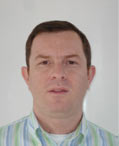
Dr. Nikolaos Doulamis (Member, IEEE) received the Diploma and Ph.D. degree in electrical and computer engineering from the National Technical University of Athens (NTUA) both with the highest honor.
He is currently an Associate Professor with the NTUA. He has received many awards (e.g., Best Student among all Engineers, Best Paper Awards) and was an Organizer and/or TPC in major IEEE conferences.
Dr. Doulamis has authored more than 75 (240) journals (conference) papers in the field of signal processing and machine learning and received more than 7800 citations. He has been involved in several European research projects.
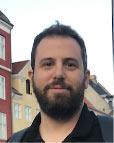
Dr. Athanasios Voulodimos (Member, IEEE) received the Dipl.-Ing., M.Sc., and Ph.D. degrees from the School of Electrical and Computer Engineering of the National Technical University of Athens (NTUA) ranking at the top of his class.
He is an Assistant Professor with the School of Electrical and Computer Engineering at NTUA. From 2018 to 2021 he was an Assistant Professor at the Department of Informatics and Computer Engineering of the University of West Attica. He has been involved in several European research projects, as a Senior Researcher and a Technical Manager.
Dr. Voulodimos was recipient of the awards for his academic performance and scientific achievements and has coauthored more than 120 papers in international journals, conference proceedings and books in the research areas of machine learning and signal processing, including their applications in earth sciences, energy and environmental engineering, receiving more than 3000 citations.
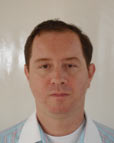
Dr. Anastasios Doulamis (Member, IEEE) received the Diploma and PhD degree in Electrical and Computer Engineering from the National Technical University of Athens (NTUA) with highest honor.
Until January 2014, he was an Associate Professor at the Technical University of Crete and now is an Assistant Professor at NTUA. He has received several awards in his studies, including the Best Greek Student Engineer, Best Graduate Thesis Award.
Dr. Doulamis has also served as program committee in several major conferences of IEEE and ACM. He is author of more than 350 papers in leading journals and conferences receiving more than 7541 citations.
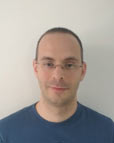
Dr. Eftychios Protopapadakis studied production engineering management at technical university of Crete. His educational background includes a M.Sc. degree in management and business administrator, a Ph.D. in decision systems, both at the same university and a post–Ph.D. in semi–supervised deep learning models, at National Technical University of Athens. He has worked as an engineer in European (BENEFFICE, euPOLIS, eVACUATE, PANOPTIS, PHOOTONICS) projects since 2010.
His research interests focus on machine learning applications. He has explored the applicability of semi-supervised techniques in various applications. Other investigated areas involve stock market share trends’ forecasting and credit risk assessment. Additionally, he has worked on structural assessment in transportation tunnel infrastructures, via deep–learning techniques and robotic platforms.
Dr. Protopapadakis co–authored more than 80 publications, receiving more than 3400 citations. His paper on industrial workflow recognition received the best paper award in INFOCOMP 2012. Other awards include university scholarships for excellence, Technical Chamber of Greece award for excellence in studies, state scholarship foundation – SIEMENS doctorate scholarship 2012 and post PhD scholarship of the National Strategic Reference Framework 2014–2020.
Open Calls
Member Highlights
Education & Resources
- SPS BISP TC Webinar: 2 November 2022, presented by Dr. Justin Dauwels
- SPS Webinar: 14 December 2022, Recent Advances in Non-line-of-sight Imaging
- SPS IFS TC Webinar: 17 November 2022, presented by Dr. Paolo Gasti
- SPS Webinar: 17 November 2022, presented by Dr. Daniel Michelsanti
- SPS ASI Webinar: 30 November 2022, presented by Dr. Nikil Dutt
- SPS Webinar: 9 November 2022, presented by Dr. DeLiang Wang
Society News
- Job Opportunities in Signal Processing
- IEEE SPS 2022 Members-at-Large and Regional Directors-at-Large Election Results
- Upcoming SPEAR Challenge: SPeech Enhancement for Augmented Reality (SPEAR) challenge
- Call for Nominations: IEEE Technical Field Awards
- Call for Nominations for IEEE SPS Editors-in-Chief
- Nominate an IEEE Fellow today!
SPS on Twitter
- DEADLINE EXTENDED: The 2023 IEEE International Workshop on Machine Learning for Signal Processing is now accepting… https://t.co/NLH2u19a3y
- ONE MONTH OUT! We are celebrating the inaugural SPS Day on 2 June, honoring the date the Society was established in… https://t.co/V6Z3wKGK1O
- The new SPS Scholarship Program welcomes applications from students interested in pursuing signal processing educat… https://t.co/0aYPMDSWDj
- CALL FOR PAPERS: The IEEE Journal of Selected Topics in Signal Processing is now seeking submissions for a Special… https://t.co/NPCGrSjQbh
- Test your knowledge of signal processing history with our April trivia! Our 75th anniversary celebration continues:… https://t.co/4xal7voFER
Home | Sitemap | Contact | Accessibility | Nondiscrimination Policy | IEEE Ethics Reporting | IEEE Privacy Policy | Terms | Feedback
© Copyright 2024 IEEE – All rights reserved. Use of this website signifies your agreement to the IEEE Terms and Conditions.
A not-for-profit organization, IEEE is the world's largest technical professional organization dedicated to advancing technology for the benefit of humanity.

